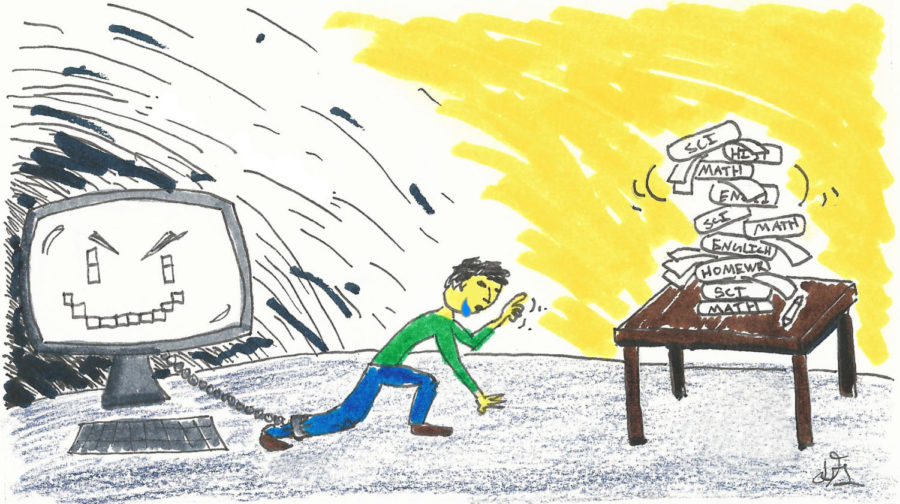Technology is Productivity’s Worst Enemy
With the advent of the internet, artificial intelligence and social media, there is no doubt that technology greatly influences our day-to-day lives. We use it to communicate with others, entertain ourselves and complete our work, but most of all, it leads to procrastination.
Having a device next to one while working is a major distraction with the endless chatter of ringers and notifications. Technology is especially distracting for high school students who spend excessive amounts of time on social media and online platforms when they should be doing homework or studying. In a study conducted on 269 college students, 92% admitted to using their phone to send text messages during class.
“I try to focus while doing my school work. However, I find myself mindlessly going through social media or watching food videos on YouTube because it’s so easy to access,” junior Madison Lam said.
More specifically, mobile devices pose an unavoidable and frequent distraction, and makes it impossible for people to focus for long periods of time without checking their phones.
“The prime culprit in hijacking attention spans is the smartphone,” the American Association of Retired Persons reported. “Americans, on average, touch their phones an astounding 2,617 times a day, according to market researcher Dscout.”
Additionally, technology influences our mental processing and function and can detract from our ability to remain focused during periods of productivity.
“Using the Internet is like jet skiing, in which the jet skier is skimming along the surface of the water at high speed, exposed to a broad vista, surrounded by many distractions, and only able to focus fleetingly on any one thing,” according to sports psychologist Jim Taylor in an article published in Psychology Today.
Despite our understanding of how technology encourages us to “skim” and not dive “deeper” into our thoughts and surroundings, supporters argue that certain technological devices, including television shows and apps, can boost intelligence and processing skills in certain age groups.
In a study published by the National Institute for Health, researchers reported that, “‘Sesame Street,’ which premiered in 1969, has been repeatedly associated with various positive outcomes such as school readiness, vocabulary size and numeracy skills.”
In this sense, it isn’t necessarily technological devices and media that causes procrastination and inhibits learning ability, but rather the specific content that is broadcasted through devices.
Though it is clear that technology is connected to procrastination, it is also clear that eliminating computers, cellphones and other devices in classrooms and households is not an option. Instead, teachers and their students should limit their access to distracting apps, programs and online interactions through their devices’ restriction settings and productivity apps. This will consequently help students stay more focused in the, and allow technology be used in a way that advances society, not stalls it.
Your donation will support the student journalists of Portola High School. Your contribution will allow us to purchase equipment and cover our annual website hosting costs.

Jordan Lee, commonly referred to as “The Flash,” is your Visual Director. He has held the positions of front page and photo editors in previous years...

Dylan Gates is the Media Director of the 2018-2019 Portola Pilot staff. He is in his Junior year at Portola and has been working with the Pilot since the...




